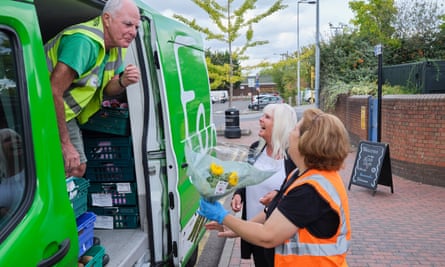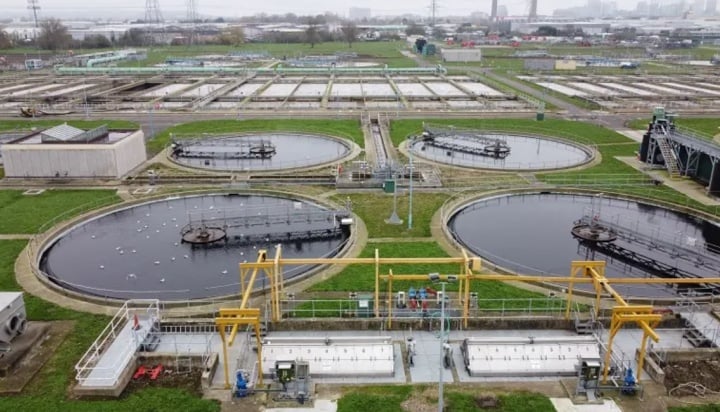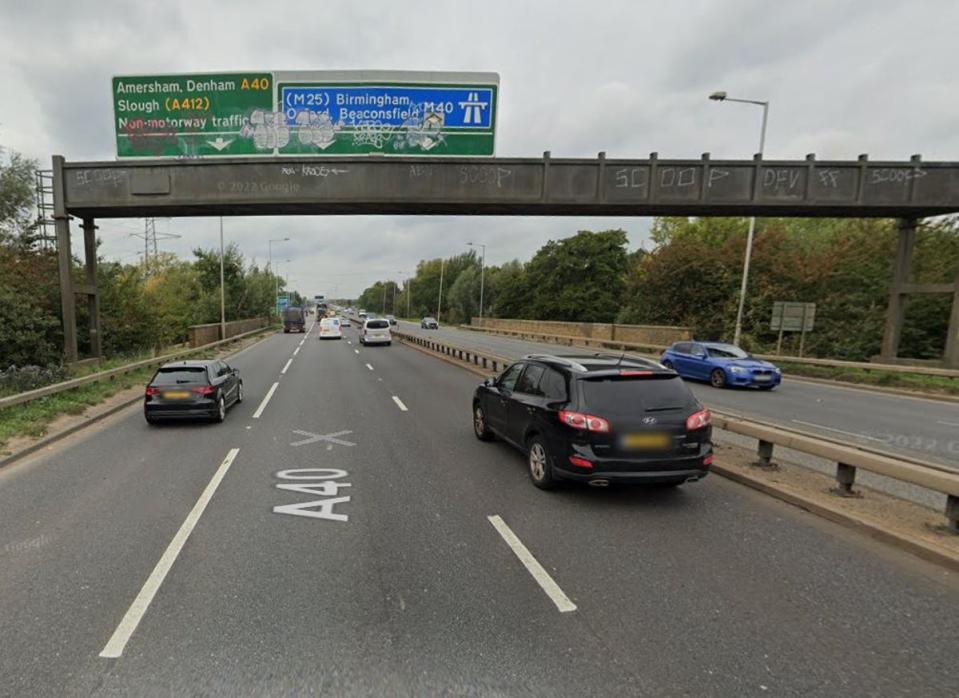London’s Community Kitchen, which helps to feed an extraordinary 14,000 people a week, began, in 2014, with a simple observation: Mumtaz “Taz” Khan noticed his seven-year-old son had started asking for double the amount of food in his packed school lunch every day. When Khan asked why, his son said he was taking the extra food for his pal who couldn’t afford to bring lunch of his own and was always hungry. Khan, a chef who had briefly worked under Marco Pierre White in the late 1990s, was shocked to hear that story.
He’d been working in Dubai for a good deal of the previous decade, and he hadn’t noticed all the ways his London neighbourhood had changed. When he talked to his son’s headteacher, however, he discovered that the hungry classmate was far from an exception. With the help of donations from local bakeries, Khan started to take regular food parcels to a few of the parents who seemed most in need, and then helped to fundraise and sponsor a breakfast club.
The more he looked at the issue, however, the more he realised that need was on a much greater scale. He heard about the Real Junk Food Project – run by another former chef, Adam Smith, in Leeds. “I spent a couple of weeks up there with Adam looking at what they were doing,” Khan says, “and I was blown away. Adam had a warehouse about the size of a Costco where he was taking in food from different sources, excess in the supply chains of wholesalers and supermarkets, that would otherwise have gone to landfill. He was giving that food back to the community, and had developed a cafe and a creche, a proper community hub based around sustainable food.”
Behind the scenes at the ‘community kitchen’ feeding thousands in London – video
Khan came back to London resolved to try something similar. His first problem was finding a space to work from. Property in the boroughs near where he lived in north-west London – Barnet, Brent, Harrow, Ealing – was far more expensive than in Leeds. He persuaded a church hall to let him set up shop for a couple of days a week and was quickly providing 150 families a week with food parcels. He was then approached by the learning department of Barnet council to create a pilot that taught people housed in supported living units how to cook for themselves. That led to a larger-scale cookery school – still using surplus, free, food – in which people could either learn basic cooking or gain the skills to get a job in a professional kitchen. “It was about that time,” Khan says, “that we realised what might be possible.”
Khan, 47, is telling me this in the office of London’s Community Kitchen in Harrow. The site, in what used to be a mental health centre, includes a large space in which volunteers sort crates and pallets of food, checking weights and sell-by dates, and assigning appropriate storage; outside there are large chill and freezer units and a vegetable garden in which local people, particularly children, are taught how to plant and what to grow. In another part of the building there is a new cooking school, with a dozen MasterChef-style stations, and a buzzing cafe which Khan created on a budget of nothing with recycled materials and coffee machines saved from skips. (“When we took it over,” he says, “it had the look of a doctor’s waiting room.”)
The Community Kitchen has now expanded across four London boroughs, but this centre is the largest. Working with councils, Khan has developed a model that uses waste food not only to feed people, but also as a tool to develop skills and community. In many ways, his own background gave him the perfect grounding for this role.
London Community Kitchen’s cafe. Photograph: Amit Lennon/The Observer
Born in Manchester, Khan came to London at 16 with no qualifications. He got jobs in hotels and cafes, washing pots, working as a kitchen porter, before one boss suggested he take a catering course. That led to him knocking on the doors of every high-end restaurant in town. The one that eventually opened for him – after a couple of times being literally slammed in his face – was at Marco Pierre White’s Michelin-starred Mirabelle in Mayfair. Khan worked his way up. He left the kitchen at one point to establish an NVQ in Indian cooking – partly based on what he remembered his mum cooking at home – and then spent most of the first decade of this century working in Dubai for a company owned by the royal family, creating turnkey restaurants and bar concepts in ever more fantastical waterfront hotels.
That experience of working for some of the richest clients in the world – “a bit like building the pyramids for pharaohs” – also fuelled his understanding of the extremes of inequality. Shocked by the conditions of the migrant labourers who were constructing the projects he helped to conceive, he made a deal with a fruit and veg supplier to secure extra van loads of produce for the workers’ camps so they could at least have some fresh food. When he came back to London full-time, to look after his mother who had developed meningitis, he brought that spirit with him.
One of the principles of the Community Kitchen is, Khan says, that it “needs to look and feel like London feels”. The queues for food, the cookery schools, the volunteers, draw people from all different faiths and cultures. “Some projects are for one community or another,” Khan says, “and that’s fine, but here we want to break down any barriers, we want people to eat together.”
Covid accelerated that ambition. In January 2020, Khan was called into a high-level meeting of Harrow council where he was asked: if there was a blockage in the food supply how could you help? He said he would create a Friday market at this centre, where people could come and collect food, and create a delivery service for where they couldn’t. By the time the pandemic began, they were up and running, serving 450 high-risk families and had established a regular supply chain from some of the bigger sustainable food initiatives, the Phoenix Project and City Harvest. Food deliveries came with menu plans.
We teach people how to cook on a budget, people who can’t speak English, we help to integrate them in basic classes
“Every single room here was packed high with food,” Khan says. “Anything we couldn’t use, that was past its use-by, went to a nearby anaerobic digestion plant where it is used for food.” A couple of videos about the kitchen went viral during the pandemic; in one Kay Burley, who volunteered here for several months full-time after being suspended from Sky News for breaking lockdown rules, gave a film diary of her days; another panned along the Community Kitchen queue in Wembley, where up to 1,500 people queue for bags of basics and fresh food every Saturday morning. “There is the backdrop of the national football stadium,” Khan says, “and a queue which takes you nearly 20 minutes’ brisk walking to get from one end to the other. In some ways it’s absolutely tragic and absurd that we have to do that. But people have to eat.”
The difference from more regular food banks is that Khan is “determined to help to break that cycle of dependency”. The cookery school is free to all local residents. “We teach people how to cook on a budget, people who can’t speak English, we help to integrate them in basic classes. We are not a college but we have had 3,000 students.”
And if you want a career in hospitality you can start that here, too. “As I know from my own past, it’s such a beautiful industry in many ways,” Khan says. “If you really want a job and are prepared to knock on some doors and work, you probably can get a job the same day, particularly at the moment when there are such shortages. That possibility gave me everything I have.”
Khan, who was appointed MBE in the Queen’s last birthday honours this summer, is not sure how far the Kitchen can grow. Obviously, he acknowledges, its “success” is also a commentary on the desperate circumstances of many people’s lives and the difficulties cash-strapped councils are having in trying to provide basic services. He has been invited to talk to numerous local authorities about the possibilities. “We’ve got the data,” he says, “on what works. We’re currently taking 16 tonnes of food a week. The green argument itself is a powerful one. One kilo of food waste going to landfill equates to 2.5kg of CO2 emissions – without taking into account manufacturing and transportation.”
 London Community Kitchen takes a delivery. Photograph: Amit Lennon/The Observer
London Community Kitchen takes a delivery. Photograph: Amit Lennon/The Observer
He also never stops thinking about possibilities. The drive between here and the food queue at Wembley takes him past Harrow school, Winston Churchill’s alma mater. “One thing kept catching my eye,” he says. “There are all these old farm buildings and lots of green acres that they seemed to use for storing equipment and stuff.” Khan discovered that the farm used to supply the school with its dinners. He smiles. “Last year, I phoned up the school governors and told them I’d like to take over their farm and make it the first socially sustainable farm in the country.” They called him in to make a presentation. He shows me the printout of his slides. “Basically, they agreed,” he says. He lays out the plan. “It’s 77 acres, we’ll do an artisan bakery, a dairy parlour making yoghurt and cheese. And do it all with local people, get the school involved. Teach everyone about food and sustainability. We are going to make it phenomenal!” You don’t doubt him for a moment.
londonscommunitykitchen.com
https://www.theguardian.com/food/2022/oct/16/ofm-awards-2022-outstanding-achievement-londons-community-kitchen




